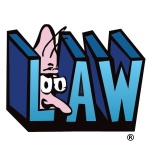Alternative Dispute Resolution
George Orwell said, “The quickest way to end a war is to lose it.” Sometimes in litigation, such as debt collection or injunctions, you can overwhelm your opponent’s trenches at an early stage. However, often in litigation, it is not over by Christmas.
In the way that War Ministries are now called Defence Ministries, sometime in the last few years Litigation Departments became Dispute Resolution Teams.
The “team’s” mission is to find a resolution to your dispute rather than just open hostilities and see how it goes, which seemed amongst clients to be the preferred method for centuries, or certainly as far back as I can remember.
Apart from mediation and tribunals, there are two other main alternatives to a court case:
Arbitration - This process replaces courts and judges and their resulting delays and red tape. Nonetheless, arbitrators produce their own delays and red tape and arbitrations can be presided over by people who are not judges but have always wanted to be. The popularity of arbitration seems to have waned in my small world.
Expert determination - Contracts often provide for issues to be determined by an expert whose decision shall be final. An independent person is appointed to choose the expert if the parties cannot agree. This can be a lottery as experts cannot be trusted to decide in your favour especially if you do not have a strong case.
What about just bumping them off? Always popular. For some, the risk of life imprisonment is adequately compensated by the promise of legal costs being covered by legal aid.
This article is also available as a Podcast. If you would prefer to listen to this and other legal content please go to the "Law" Podcast :
We pride ourselves on delivering sound, practical advice with an understanding of every client’s personal needs.






Comments
Post a Comment